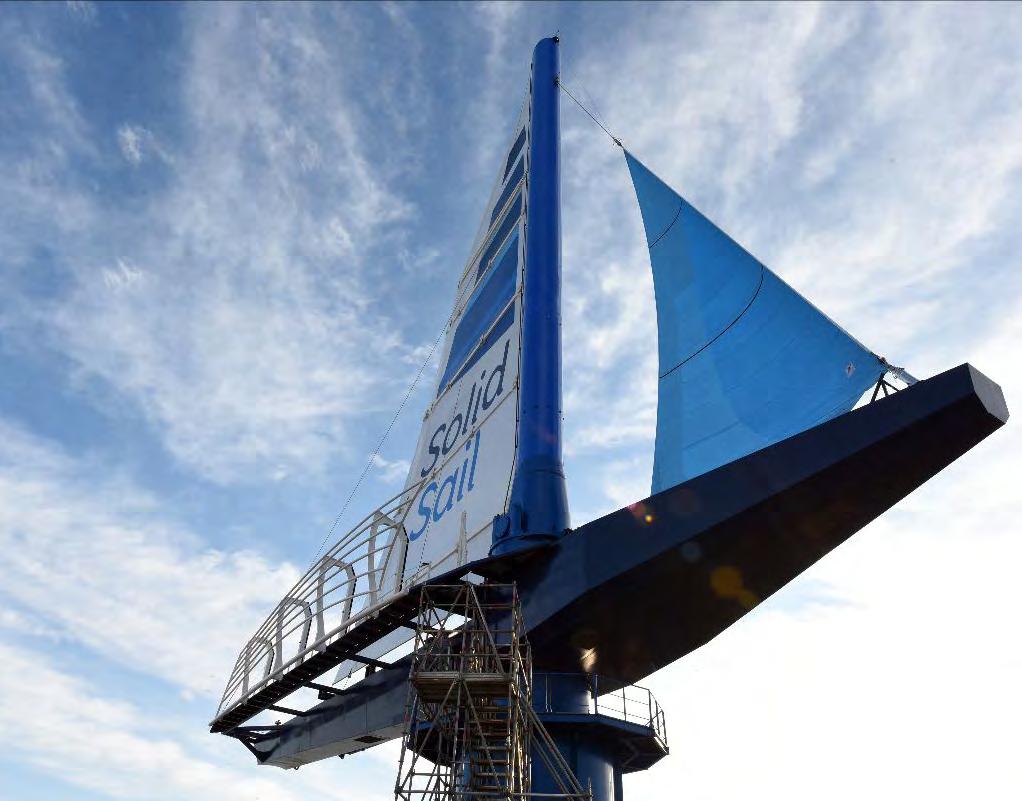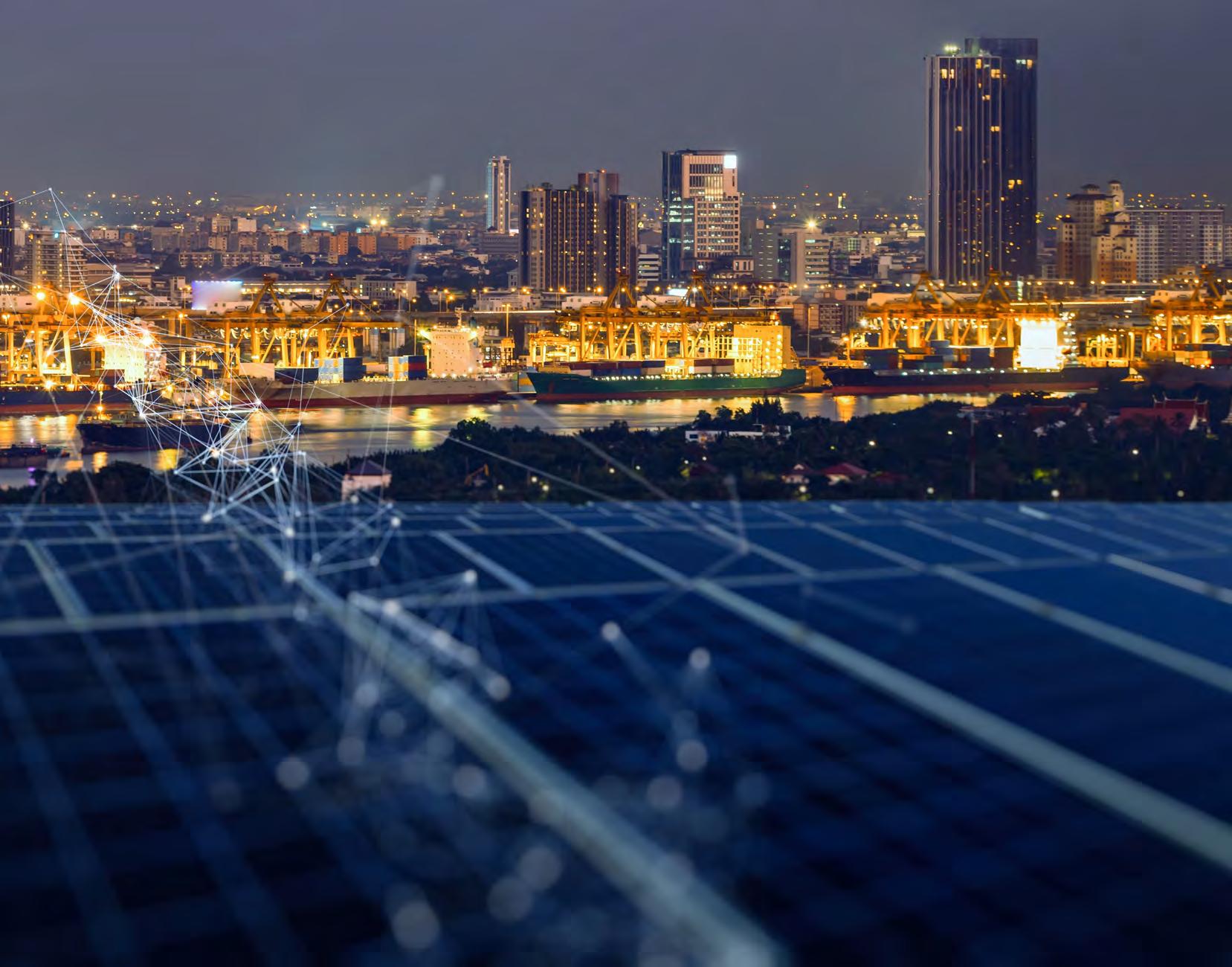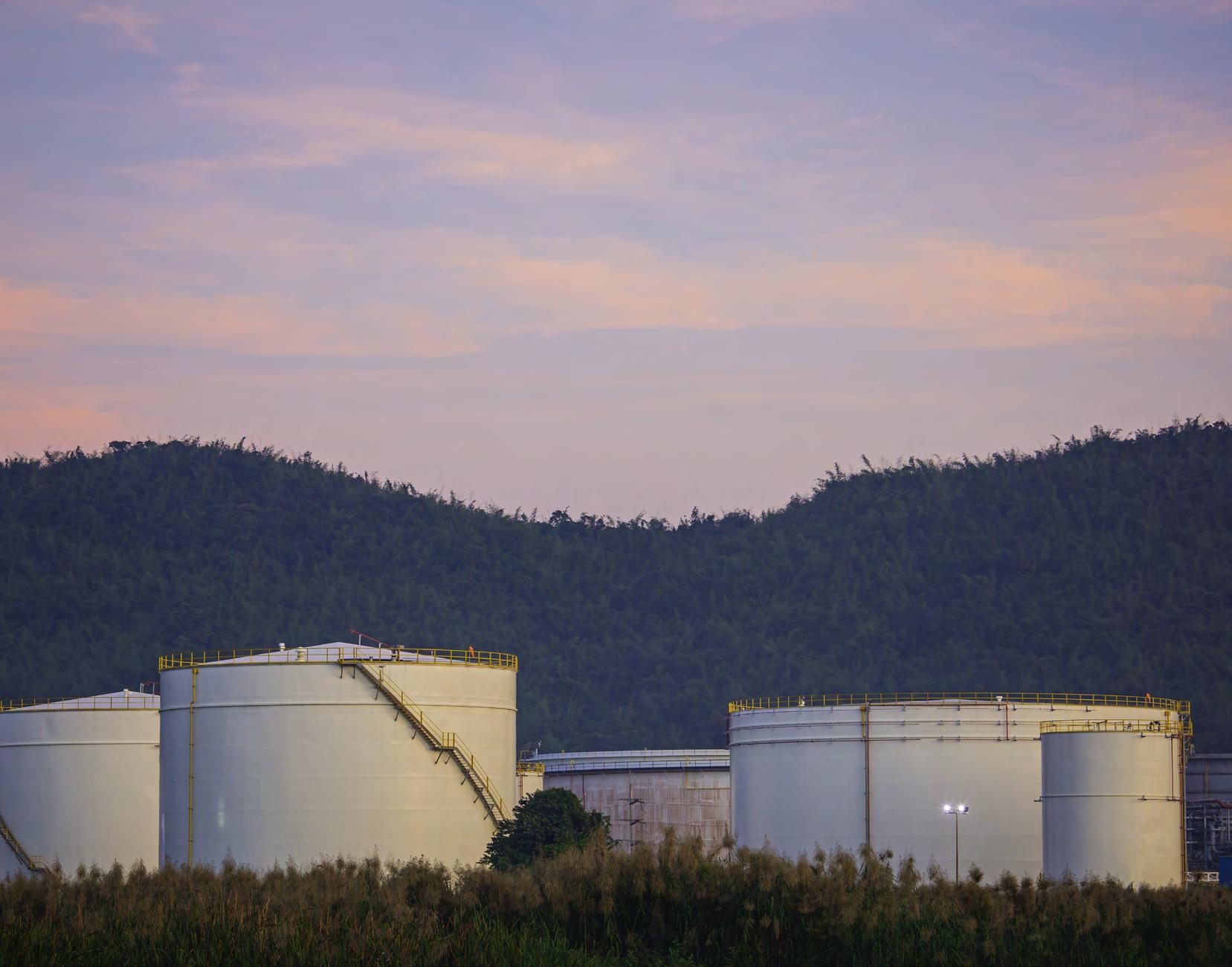
8 minute read
FUEL EFFICIENCY
from CSI Summer 2022
by Maritime-AMC
Given the costs involved, particularly in the current environment, ensuring maximum fuel efficiency is essential for the maritime industry
EFFICIENCY AT THE FOREFRONT
More than 250 shipowners and operators using the PortsDirect platform will be able to take advantage of Svitzer’s new EcoTow towage solution to reduce in-port emissions and drive sustainability in their supply chains.
PortsDirect, a leading company for the structured procurement of discounted rate agreements with quality port services providers for the benefit of its customers, has announced a landmark partnership with Svitzer, a global towage operator and part of AP Moller-Maersk. The collaboration will give PortsDirect’s 250 ship-owning and operating customers the ability to choose Svitzer’s new carbon-neutral EcoTow service.
Svitzer’s 10 EcoTow tugs powered by marine biofuel in London and Medway operate entirely on hydrogenated vegetable oil (HVO) – an ISSC and RSB-certified sustainable second-generation biofuel produced by using waste material such as used cooking oil as feedstocks. The biofuel reduces carbon emissions by 100% on a tank-to-wake basis and 90% on a well-towake basis compared to marine diesel.
By choosing to use EcoTow, PortsDirect’s customers will be able to lower their Scope 3 emissions, which make up the majority of a company’s carbon footprint and improve the sustainability of their supply chains. Svitzer will partner with an independent auditor which will enable the organisation to provide PortsDirect customers with a CO2 savings certificate compliant with regulatory authorities.
For shipowners and operators, PortsDirect’s services include the provision of discounted rate agreements for port services such as towage, launches and pilotage. PortsDirect also deals with the management and administration of such service agreements for the benefit of its customers which takes away the time and hassle of negotiating separate contracts with individual suppliers, and enables them to benefit from PortsDirect’s discounts, saving money every year.
Commenting on the partnership, Kenny Bjergstad, managing director of PortsDirect,
says: “Our customers recognise the importance of reducing their CO2 emissions and supporting the rest of the industry in meeting shipping’s decarbonisation pathway and targets.
“The entire supply chain is under scrutiny for where efficiency gains can be made and our partnership with Svitzer provides our customers with the opportunity to address and further improve their Scope 3 emissions within the port environment, improving their sustainability, but also their competitiveness in the eyes of counterparties.
“We remain committed to always supporting them in meeting their own sustainability strategies and targets in what is the biggest challenge for the shipping industry.”
Sven Lumber, head of EcoTow at Svitzer, says: “The reception for EcoTow in London and Medway has simply been fantastic, proving that the shipping industry is looking for solutions to help it make decarbonisation progress in the near term.
“Our innovative and world-first carbon-neutral towage solution is an obvious fit to be able to offer to PortsDirect’s customers, and we look forward to further collaboration as we work together to reduce the environmental impact of towage and other services in the port ecosystem.”
EFFICIENCY REPORT
The Blue Sky Maritime Coalition (BSMC) has released a new report, A Perspective on IMO Efficiency Measures: Opportunities for Improvement, which highlights key opportunities to improve current international efficiency measures.
“This report is a great example of industry collaborating to find opportunities for improvement and spurring further discussion among key stakeholders. As a member-led organisation focused on decarbonising the maritime industry, BSMC brings together diverse perspectives with the goal of getting to net-zero emissions by 2050, and this report offers another step in that direction,” says David Cummins, BSMC president and CEO.
Developed by the Finance, Commercial and Chartering Workstream, the report offers insights on how decisions made by charterers can affect vessel operations, ultimately impacting the efficiency rating of shipowners.
The report concludes that more work will be needed to fine tune the existing calculation method and benchmarking. Maritime stakeholders welcome the opportunity to improve vessel operational performance through robust reporting regimes, necessary to consistently measure emissions.
To address the issues raised, the report recommends mutual responsibility and obligation by both the charterer and shipowner to reduce emissions.
To accomplish this, both parties must have transparent negotiations and data sharing under a new era of chartering contracts where environmental key performance indicators become instrumental to vessel selection criteria and commercial utilisation. To read more, download a copy of the report at: tinyurl.com/BlueSky-Report
DIGITAL GREEN TANKER
Leading Swedish tanker operator Terntank recently accepted delivery of Tern Fors. The vessel is the second tanker of a series of two that combine liquefied natural gas (LNG)/LNG engine-powered engines, are 100% biofuel compatible, emit no greenhouse gases or carbon particulates during port operations and facilitate enhanced digital solution for just-in-time management.
The ship was delivered from China Merchants Jinling Shipyard, Yangzhou, Dingheng.
Designed by Terntank and Kongsberg Maritime, Tern Fors is the second 15,000DWT chemical and product tankers. The vessel has been uniquely designed with a hybrid solution combining a dualfuel-powered engine that uses liquefied biogas or LNG, which means that it is able to operate on completely fossil-free fuel.
Additionally, Tern Fors has been installed with Kongsberg’s digital solution vessel insight. The digital solution installed upon the vessel optimises voyages, achieved by constantly adjusting the vessel’s speed to meet its agreed time of arrival and utilising slow streaming, which allows the vessel to send a virtual NOR, moving directly into port, instead of dropping anchor and waiting to berth. This also ensures compliance with the BIMCO clause on slow steaming and tracks real-time savings.
This digital solution offers enhancement to the company’s just-in-time management, which is continuously being developed, providing vessel-to-cloud data infrastructure capturing and aggregating quality data in respect to the vessel’s overall operation.
The data gathered ranges from engine and piston performance, hull build up, to even contact with ice. This data is then utilised to allow efficient and proactive maintenance, evidently leading to reduced emissions, placing Terntank’s green operations in another league.
Furthermore, Tern Fors and sister vessel Tern Island are 100% biofuel compatible. The main engine, boiler and auxiliary engine are designed to
reduce the environmental impact and perform safe operations running on biofuels.
By combining the optimised hull and rudder design with dual fuel capability, when utilising 30% biogas, in comparison to a same-sized conventional vessel, Tern Fors reduces emission by -70% of CO2 and almost eliminated the emissions of sulphur oxide (-99%), of particle emission, (-99%) and nitrogen oxide (-97%).
Claes Möller, CEO of Tärntank Ship Management, notes: “The delivery of Tern Island and Tern Fors mark our ongoing journey to evolve and learn, in respect of continuously developing sustainable shipping across all range of our operations. The innovative ship design of Tern Fors and Tern Island, unites technical and digital solutions that optimise voyages, achieves a drastic decrease in emissions and most significantly assists our crew onboard in daily operations. ”
The ships not only drastically lower emissions via fuel consumption and digital solutions, as well as the ability to eliminate the use of fossil fuel during port operations with their HYBRID SOLUTION®, the delivery of the vessels is also a clear signal of Terntank’s ambition to be a forerunner in the sector and an indication of the important role of digital solutions in shaping the new green era in shipping.
Tern Fors has a cargo capacity of 16,500 cubic meters in 14 epoxy coated tanks, will be commercially operated by the Finnish North European Oil Trade (NEOT) in the Baltic Sea area and will be included in a pool along with other vessels from Terntank. The vessel, which has been delivered before contract date due to the efforts of everyone involved, will now proceed to Europe fully loaded with bio products.
CLEAN AGREEMENT
Clean technology company Silverstream Technologies recently announced that it has reached an agreement with Klaveness Combination Carriers (KCC) to install an innovative new version of its proven air lubrication system, the Silverstream® System, on up to 11 vessels, including three CABU II class and eight CLEANBU class vessels.
The Silverstream® System uses a series of air release units (ARUs) in the vessel’s flat bottom to generate a uniform carpet of microbubbles that travel the full length of the hull, reducing friction between the hull and the water and substantially reducing fuel consumption and carbon emissions as a result.
Silverstream’s patented technology maximises these net efficiency gains through the system’s low power consumption and highly effective delivery of microbubbles into the boundary layer.
The retrofit installations will commence in early 2023 and take two years to complete. The collaboration between Klaveness and Silverstream Technologies has resulted in a pioneering solution suitable for any standard tanker and bulk carrier of this size. The deal enables KCC to further enhance the already market-leading environmental performance of its combination carrier fleet.
With its capability to carry both types of cargo and other design improvements, KCC’s vessels emit up to 40% less CO2 per ton-mile compared to standard tanker or bulk carriers in similar trading patterns – a high performance benchmark that will be boosted by the installation of the Silverstream® System.
Noah Silberschmidt, CEO of Silverstream Technologies, says: “We are delighted to sign this deal with KCC and begin work to retrofit our technology across its fleet. KCC has a strong and well-deserved reputation for being a sustainability leader and a genuinely green-minded innovator, and we are confident that our system will help to boost these credentials even further.
“The deal also proves Silverstream’s ability to take on complex retrofit projects and again underlines the attractiveness of our unique technology to a wide range of shipping segments and vessel operations. It also strengthens our ability to be able to serve unique vessel types and positions us perfectly to scale up adoption of our solution in both dry bulk and tanker shipping.
“Shipping has precious little time to act on its environmental footprint and proven clean technologies like the Silverstream® System are one of the only ways that owners and operators can get ahead of the curve. We look forward to further scaling our technology across a range of vessel types and fleet sizes in the near future.”
Engebret Dahm, CEO of KCC, adds: “Maximising the energy efficiency of our fleet is a top priority for KCC. It is a prerequisite for reaching our decarbonisation targets and succeeding with the future energy transition. We are pleased to conclude the deal with Silverstream and to start the installation of Silverstream’s air lubrification system on two vessels in 2023, with the intention to roll out the system on a further nine vessels during 2024-25.
“The system is an important part of a larger planned energy efficiency retrofit programme at KCC.”











